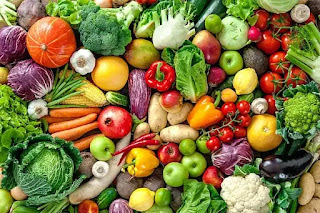Healthy Fruits to Enjoy After a Meal
Adding fruits to your diet is an excellent way to enhance your overall health and well-being. Not only do they provide essential vitamins, minerals, and fiber, but many fruits also offer unique health benefits. Incorporating fruits into your post-meal routine can be a delightful and nutritious choice. In this blog post, we will explore 40 healthy fruits to enjoy after a meal and delve into their specific functions that contribute to your well-being.
1. Apples:
Functions: Apples are rich in fiber, antioxidants, and vitamin C, promoting heart health, aiding digestion, and supporting immune function.
2. Bananas:
Functions: Bananas provide potassium, vitamin B6, and dietary fiber, contributing to muscle function, regulating blood pressure, and promoting gut health.
3. Oranges:
Functions: Oranges are packed with vitamin C, folate, and flavonoids, supporting immune function, collagen production, and reducing inflammation.
4. Strawberries:
Functions: Strawberries contain antioxidants, fiber, and vitamin C, promoting cardiovascular health, improving skin elasticity, and reducing oxidative stress.
5. Blueberries:
Functions: Blueberries are rich in antioxidants, anthocyanins, and vitamins C and K, supporting brain health, improving memory, and reducing the risk of chronic diseases.
6. Kiwi:
Functions: Kiwi is a great source of vitamin C, vitamin E, and dietary fiber, aiding digestion, supporting eye health, and boosting the immune system.
7. Pineapple:
Functions: Pineapple contains bromelain, an enzyme that aids digestion, reduces inflammation, and supports respiratory health.
8. Mango:
Functions: Mangoes are rich in vitamin C, vitamin A, and fiber, promoting eye health, supporting digestion, and boosting the immune system.
9. Watermelon:
Functions: Watermelon is hydrating and contains lycopene, which promotes heart health, reduces oxidative stress, and supports a healthy complexion.
10. Papaya:
Functions: Papaya contains papain, an enzyme that aids digestion, supports wound healing, and has anti-inflammatory properties.
11. Grapes:
Functions: Grapes contain antioxidants, polyphenols, and resveratrol, which contribute to heart health, brain function, and reducing inflammation.
12. Pomegranate:
Functions: Pomegranates are packed with antioxidants, promoting cardiovascular health, supporting healthy blood pressure levels, and reducing inflammation.
13. Pear:
Functions: Pears provide dietary fiber, vitamin C, and antioxidants, promoting digestive health, supporting the immune system, and reducing the risk of chronic diseases.
14. Cherries:
Functions: Cherries are rich in antioxidants, anthocyanins, and melatonin, supporting sleep quality, reducing inflammation, and aiding muscle recovery.
15. Papaya:
Functions: Papaya contains papain, an enzyme that aids digestion, supports wound healing, and has anti-inflammatory properties.
16. Grapefruit:
Functions: Grapefruits are a good source of vitamin C, fiber, and antioxidants, supporting weight management, boosting immune function, and promoting healthy skin.
17. Cranberries:
Functions: Cranberries contain antioxidants and proanthocyanidins, which support urinary tract health, prevent bacterial infections, and promote heart health.
18. Avocado:
Functions: Avocados provide healthy fats, fiber, and potassium, supporting brain function, heart health, and improving nutrient absorption.
19. Apricots:
Functions: Apricots contain antioxidants, vitamins A and C, and dietary fiber, promoting eye health, supporting immune function, and aiding digestion.
20. Raspberries:
Functions: Raspberries are rich in antioxidants, fiber, and vitamins C and K, supporting cardiovascular health

